HOW TO EDUCATE THE NEXT GENERATION ABOUT
THE METAVERSE
Shall we educate children about the metaverse? Or actually, are they going to educate us?
I have spoken with a few industry colleagues and decided to wrap our conversation in a short article to summarise our thoughts on the metaverse relationship with the next generation.
The metaverse, a virtual world that is fully immersive and interactive, is rapidly becoming a reality. We all talk about our understanding of the metaverse and how we see it may look. But I believe it is essential we talk with the younger generation about their vision of this new upcoming world.
Fully-interactive experiences, co-creating and gamification is ‘totally normal’ for the tech-savvy generation. According to The Insights Family, leading family market research company, globally 78% of kids aged between 3-18 report playing video games with this being +12% increase since Q2 of 2020, beginning of the pandemic. The synergy between gaming and the metaverse allows for immersive, interactive experiences that blur the lines between the virtual and real worlds.
I have spoken with a few industry colleagues and decided to wrap our conversation in a short article to summarise our thoughts on the metaverse relationship with the next generation.
The metaverse, a virtual world that is fully immersive and interactive, is rapidly becoming a reality. We all talk about our understanding of the metaverse and how we see it may look. But I believe it is essential we talk with the younger generation about their vision of this new upcoming world.
Fully-interactive experiences, co-creating and gamification is ‘totally normal’ for the tech-savvy generation. According to The Insights Family, leading family market research company, globally 78% of kids aged between 3-18 report playing video games with this being +12% increase since Q2 of 2020, beginning of the pandemic. The synergy between gaming and the metaverse allows for immersive, interactive experiences that blur the lines between the virtual and real worlds.
Prof Dr Ger Graus OBE, Global Education Adviser comments,
‘The next generation is interested in the metaverse due to boredom with the now, excitement about the future, curiosity, and a search for purpose and application. They see the Metaverse as a solution to drive “the appliance of science” and to provide awe and wonder. They hope that the promises of the Metaverse can come true and that it can be used to make the world a better place. Perhaps, just perhaps, this is a positive legacy of the global pandemic..’
Here are a few ways how educators can engage with children about the metaverse and, at the same time, collect their feedback and initiatives:
- Incorporate the metaverse into the curriculum: One of the most effective ways to educate the next generation about the metaverse is to incorporate it into the curriculum. This can include virtual field trips, simulations, and role-playing exercises that help students understand complex concepts and real-world applications of the metaverse. Real immersive technology should not be told, they should be experienced. According to a study by Limelight Networks, 80% of Gen Z and Gen Alpha students prefer virtual field trips over
Jo Redfern, Global Head of Brand at 24 Watts adds "Imagine the fun of visiting a 3D replication of a physical city in Ancient Greece where you can explore, observe and learn with "digital twins." Blockchain technology can ensure secure identity and data continuity for recording and verifying individual learning and skills within the metaverse, using "soul bound tokens." These tokens are tied to a person and their achievements, skills, test scores, and work experience can be accessed with permission. This may become more valuable to employers than a traditional resume."
The development of the metaverse and web3 technologies is likely to lead to the creation of new professions and job opportunities, including metaverse architects, virtual show planners, Web3 economy analysts, virtual world moderators etc.
The development of the metaverse and web3 technologies is likely to lead to the creation of new professions and job opportunities, including metaverse architects, virtual show planners, Web3 economy analysts, virtual world moderators etc.
- Emphasise digital literacy: The metaverse is a digital space, and it is important that students have a good understanding of digital literacy. This includes understanding how to navigate virtual environments, how to communicate effectively in virtual spaces, and how to protect their privacy and security online.
- Foster creativity and innovation: The metaverse is a new and exciting technology, and it is important to encourage students to be creative and innovative with it. Creativity is among the most valuable skills of the future, alongside related skills like agility and adaptability. This can include encouraging students to develop their own virtual environments, create their own simulations, and explore new ways of using the metaverse in fashion, education or any other sectors.
- Emphasise ethics and responsibility: As the metaverse is a new technology, it is important to educate students about the ethical implications of its use and the responsibilities that come with it. This can include discussing issues such as privacy, transparency, security, and online behaviour. They need to see and understand how blockchain can increase optimization and transparency.
- Incorporate accessibility considerations: The metaverse can also make education more accessible for children with disabilities. It is important to educate students about how to create inclusive virtual environments and how to make the metaverse accessible for everyone.
If you are looking to build your content strategy in the web3 space, don’t hesitate to contact me to review your communication approach.
Metaverse Fashion News
- Advisory board member of DAO MFCCMO at GlobalUp | Marketing & PR | Web3 | Content Producer | Fashion Lover
READ MORE



